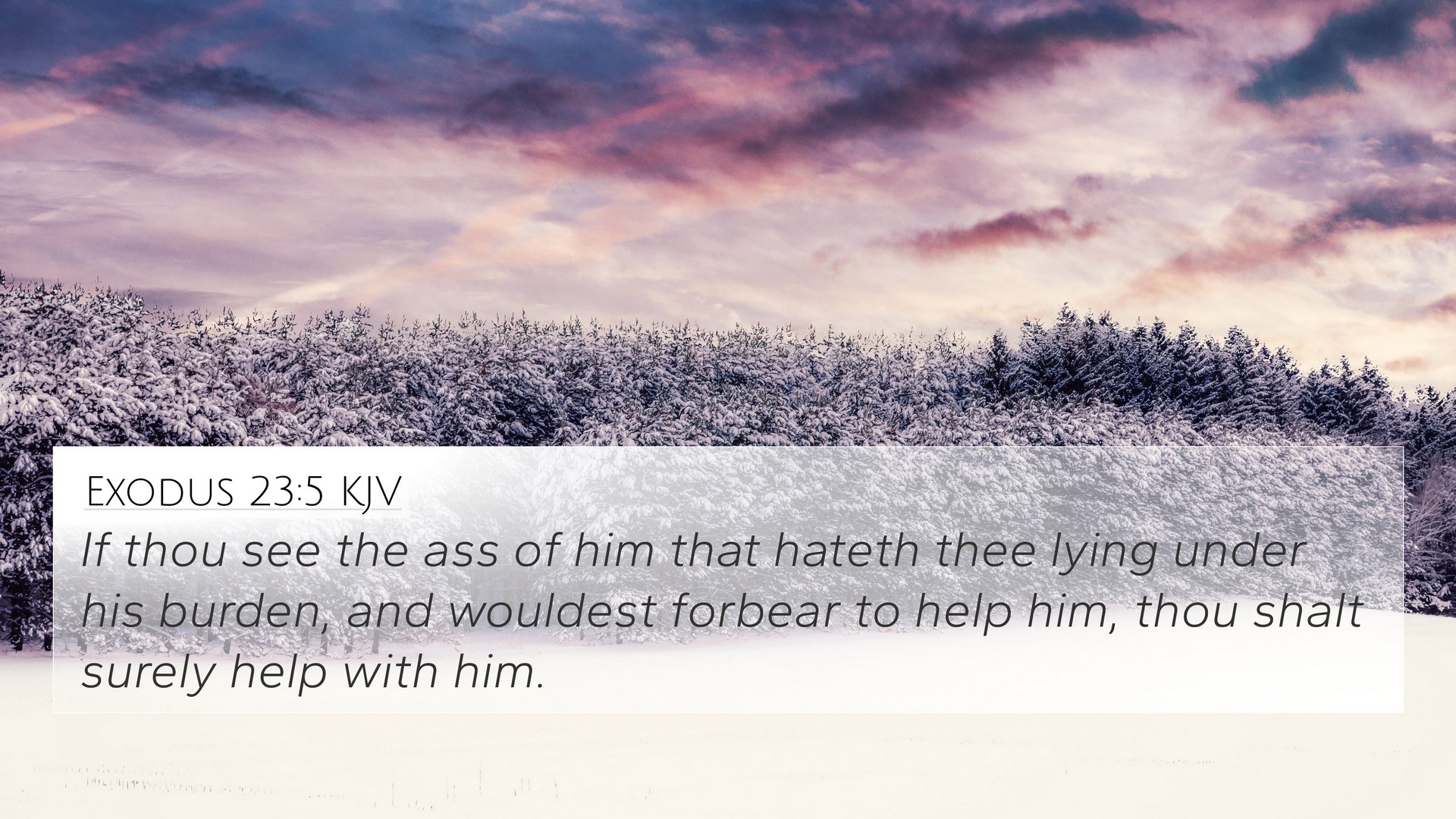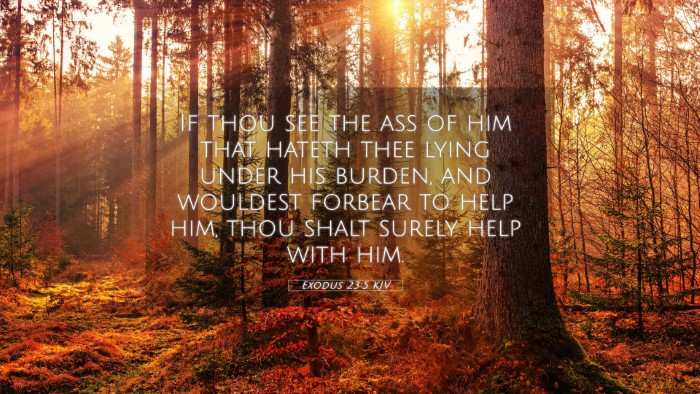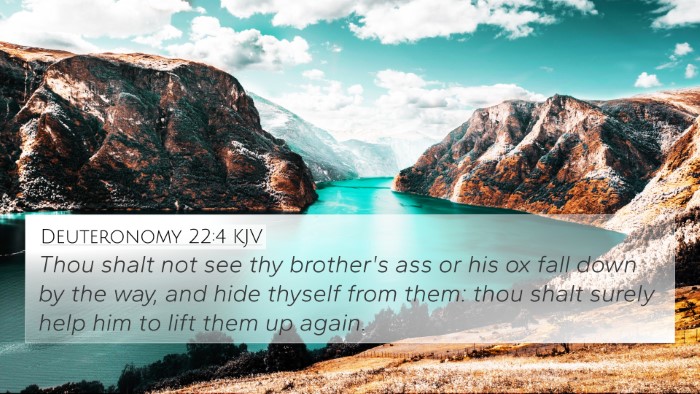Understanding Exodus 23:5
The verse Exodus 23:5 states: "If you see the donkey of one who hates you lying under its burden, and you would refrain from helping it, you must surely help him with it." This verse encompasses a profound moral lesson emphasizing compassion even towards those who are adversarial.
Summary of Insights from Public Domain Commentaries
This verse has been interpreted in various public domain commentaries, revealing layered meanings. Below are combined insights from Matthew Henry, Albert Barnes, and Adam Clarke:
1. The Principle of Compassion
Henry emphasizes the obligation to show kindness even to enemies. The donkey represents an individual’s burden, and the act of helping reflects the principle of mercy and compassion that transcends animosity.
2. Moral Responsibility
Barnes focuses on the moral duty of an individual to assist those in need, regardless of personal feelings. The verse encourages behavior that aligns with a higher ethical standard.
3. Community Harmony
Clarke reflects on community dynamics, suggesting that aiding even those we oppose fosters societal harmony. Such actions promote goodwill and diminish hostility.
Cross References and Connections
Exodus 23:5 can be connected to several other biblical passages that reflect similar themes of compassion, morality, and responsibility. Below are some pertinent Bible verse cross-references:
- Deuteronomy 22:4: "You shall help your neighbor with their animal if it has fallen." This reinforces the notion of assisting those in distress.
- Proverbs 24:17-18: "Do not rejoice when your enemy falls, and let not your heart be glad when he stumbles." This teaches the importance of compassion towards adversaries.
- Luke 10:33-34: The parable of the Good Samaritan illustrates the same moral obligation to help others in distress, regardless of relationships.
- Matthew 5:44: "But I say to you, Love your enemies and pray for those who persecute you." This verse mirrors the heart of Exodus 23:5 in relation to loving one’s enemies.
- Romans 12:20: "If your enemy is hungry, feed him; if he is thirsty, give him something to drink." This reinforces helping even those who may not wish you well.
- James 2:15-16: Addresses assisting those in need without prejudice, reflecting the principles seen in Exodus 23:5.
- Galatians 6:2: "Bear one another's burdens, and so fulfill the law of Christ." This highlights the communal duty of helping others.
Thematic Bible Verse Connections
The themes emerging from Exodus 23:5 resonate throughout both the Old and New Testaments. Such exampled behavior of clemency contributes to a broader understanding of biblical ethics, demonstrating that:
- Compassion over Judgment: Biblical texts encourage acts of kindness over resentments.
- The call for Universal Love: Not limited to friends but extends to foes.
- Reflection of God's Character: God is portrayed as merciful and compassionate.
Practical Applications for Today
In modern contexts, the implications of Exodus 23:5 invite individuals to reflect upon:
- Interpersonal Relationships: Encouraging forgiveness and kindness in every situation.
- Moral Dilemmas: Evaluating decisions that align with ethical responsibilities.
- Social Justice: Compassionate responses to social issues influenced by animosity.
Conclusion
Exodus 23:5 teaches timeless lessons on compassion and moral duty that encourage individuals to rise above enmity. This comprehensive understanding enhances our interpretation of scripture and emphasizes the interconnectedness of biblical teachings. By engaging with the cross-referenced scriptures and understanding their common thematic threads, believers can cultivate a life reflecting divine love and mercy.



